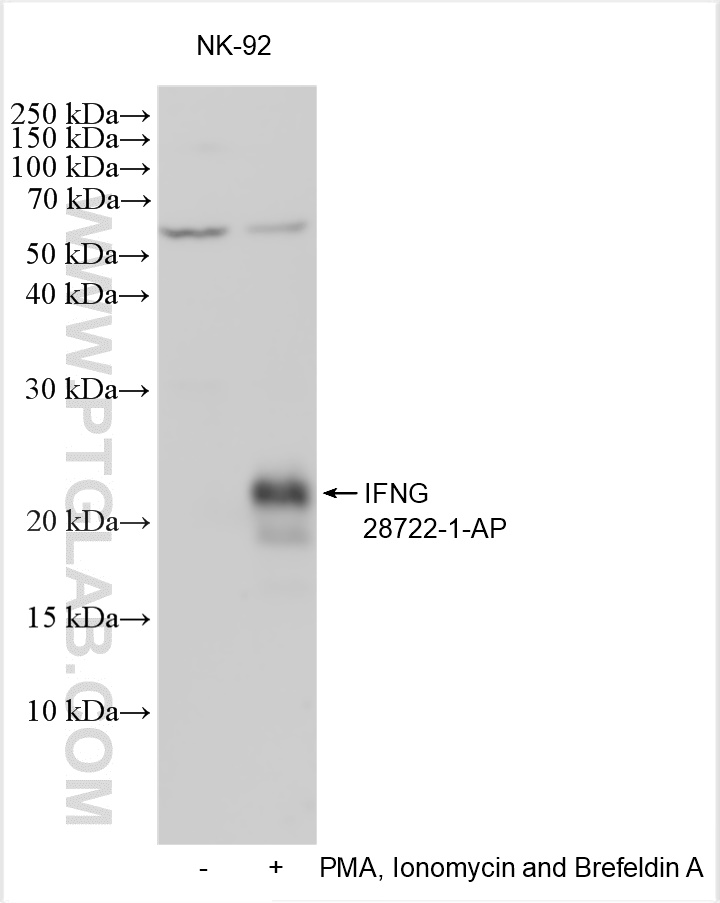验证数据展示
经过测试的应用
| Positive WB detected in | PMA, Ionomycin and Brefeldin A treated NK-92 cells |
推荐稀释比
| 应用 | 推荐稀释比 |
|---|---|
| Western Blot (WB) | WB : 1:500-1:2000 |
| It is recommended that this reagent should be titrated in each testing system to obtain optimal results. | |
| Sample-dependent, Check data in validation data gallery. | |
产品信息
28722-1-AP targets IFN-gamma in WB, ELISA applications and shows reactivity with human samples.
| 经测试应用 | WB, ELISA Application Description |
| 经测试反应性 | human |
| 免疫原 | IFN-gamma fusion protein Ag30371 种属同源性预测 |
| 宿主/亚型 | Rabbit / IgG |
| 抗体类别 | Polyclonal |
| 产品类型 | Antibody |
| 全称 | IFN gamma |
| 别名 | IFNG, IFNγ, IFN-gamma,IFN gamma,IFN γ,IFNγ, IFN γ, IFN gamma |
| 计算分子量 | 166 aa, 19 kDa |
| 观测分子量 | 20-25 kDa |
| GenBank蛋白编号 | BC070256 |
| 基因名称 | IFNG |
| Gene ID (NCBI) | 3458 |
| ENSEMBL Gene ID | ENSG00000111537 |
| RRID | AB_3086082 |
| 偶联类型 | Unconjugated |
| 形式 | Liquid |
| 纯化方式 | Antigen affinity purification |
| UNIPROT ID | P01579 |
| 储存缓冲液 | PBS with 0.02% sodium azide and 50% glycerol , pH 7.3 |
| 储存条件 | Store at -20°C. Stable for one year after shipment. Aliquoting is unnecessary for -20oC storage. |
背景介绍
Interferon gamma (IFNG) is a soluble cytokine that is the only member of the type II class of interferons. It is secreted by Th1 cells, cytotoxic T cells and NK cells. The cytokine is associated with antiviral, immunoregulatory and anti-tumor properties and is a potent activator of macrophages. It plays crucial roles in pathogen clearance. Aberrant IFNG expression is associated with a number of autoinflammatory and autoimmune diseases. It has been identified in many studies as a biomarker for pleural tuberculosis (TB). Mutations in this gene are associated with aplastic anemia.
实验方案
| Product Specific Protocols | |
|---|---|
| WB protocol for IFN-gamma antibody 28722-1-AP | Download protocol |
| Standard Protocols | |
|---|---|
| Click here to view our Standard Protocols |
